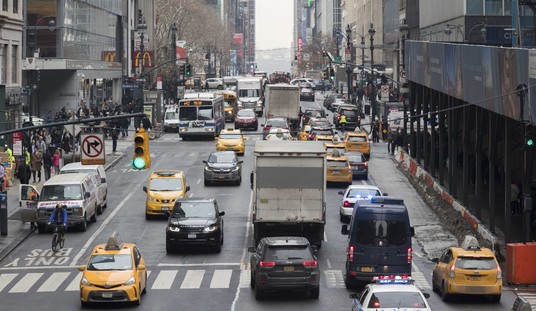Republicans have been asking this question for years. The problem is that asking the question is almost all they’ve been doing. With the rise of Donald Trump widely perceived as the revolt of working-class white voters in the GOP, Thomas Edsall wonders at the New York Times where a similar revolt among African-American Democrats has been — or whether it ever will be:
How have African-American voters been faring over all? Badly. The Democratic debt to black voters is immense, and the party has not paid up.
There is no evidence yet of a political rebellion parallel to the one taking place in the Republican Party, despite the fact that poor black Americans are having a much tougher time than the white working class Republicans flocking to Trump.
One key measure of how well a demographic group is doing is the percentage of children living in communities of high concentrated poverty, in so-called toxic social environments.
There is a rapidly growing body of evidence, compiled by economists, sociologists and public policy experts, which demonstrates the depth of the damage inflicted on children in such toxic neighborhoods.
“Thirty years of research has converged on a clear and compelling fact: It’s not just the family a child is born into that determines her fate, but the neighborhood she grows up in,” Stefanie DeLuca, a sociologist at Johns Hopkins, wrote to me.
If Trump’s movement is a rebellion of working-class white voters on the Right and center, which may not fully or accurately characterize it, it happened because Trump gave that constituency an opening and an opportunity to act. The GOP could do that with African-American voters, but it first has to decide it wants to provide that opening.
Edsall’s correct about the need for such a revolt, and its overdue nature. The urban cores where this voting demographic tends to concentrate have been run by Democrats for decades. In return for their loyalty, Democratic policies in these areas have created and expanded these “toxic social environments.” Important interest groups, such as public-employee unions, have redirected local and state revenues for their own interests rather than in improving the lives of these constituents. Teachers unions resist reforms to fix broken schools, leaving children mired in poverty and without the education to break out of it.
The problem for African-Americans is that a Republican retreat from the urban cores at all levels has left them with no other options. As I began researching my upcoming book Going Red, I spoke with conservatives like Pudgy Miller in North Carolina and Sonnie Johnson in Virginia, who called out the GOP for refusing to engage honestly with black voters. That leaves these communities with no leverage in the system at all, and lets both political parties off the hook.
“No one has to be held accountable,” Sonnie told me in a lengthy interview, and sharply criticizes the GOP both for abandoning black voters and then refusing to apologize for — or even admit to — doing so. “Republicans don’t have to say ‘we were wrong’, and Democrats never have to talk about the real evil of the policies they push.” Until Republicans engage effectively and meaningfully, Democrats have no reason to change or to offer anything more than a patronizing glance to a demographic to which they feel entitled.
In some communities, however, Republicans have already begun to succeed in reaching African-American voters. John Kasich won 26% of Ohio’s black vote in his re-election bid in 2014, and Going Red tells the story of similar efforts and successes — as well as some frustrating lack of progress — in other swing states. The GOP can facilitate what Edsall prescribes, if it decides to tackle its previous failures and looks at the effort as a long-term investment in conservative activism.
Adapted from GOING RED: THE TWO MILLION VOTERS WHO WILL ELECT THE NEXT PRESIDENT—AND HOW CONSERVATIVES CAN WIN THEM Copyright © 2016 by Ed Morrissey. To be published by Crown Forum, an imprint of Penguin Random House LLC, on April 12. Available for pre-order in hardcover, e-book, and audio.








Join the conversation as a VIP Member